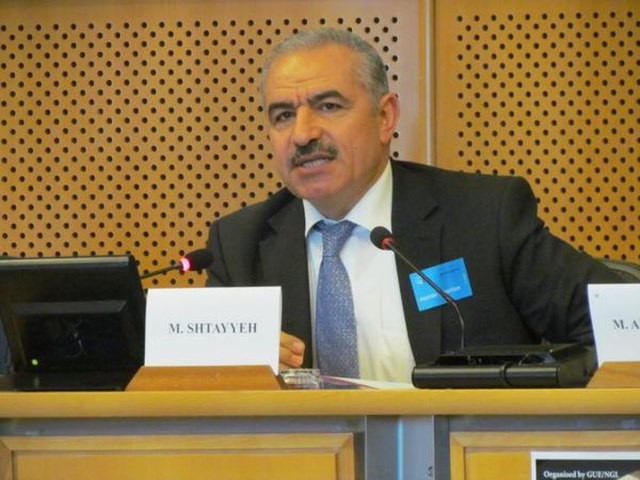Palestinian Authority Prime Minister Mohammed Shtayyeh announced the resignation of his government, marking a pivotal moment for the Palestinian leadership amid escalating pressures for reform and governance improvement in the West Bank. The announcement, made via a formal statement on Facebook, was addressed to both President Mahmoud Abbas and the Palestinian populace, underscoring the gravity of the current political, security, and economic challenges facing the authority.
Shtayyeh, who has held the prime ministerial post since 2019, cited the multifaceted adversities confronting the Palestinian people, including aggressive actions against Palestinians in Gaza, escalating tensions in the West Bank, and the broader international political landscape, as the backdrop for this decision. The resignation reflects a broader intent to pave the way for potential reforms within the Palestinian Authority (PA), which has been subject to criticism both domestically and internationally for issues related to governance and perceived corruption.
The Palestinian Authority, established in the mid-1990s as a provisional administration in anticipation of Palestinian statehood, has been at the center of the complex political dynamics of the region. With its administrative center in Ramallah, the PA has navigated the turbulent waters of Middle Eastern politics, facing challenges from within and beyond its borders, including the contentious relationship with Hamas, which took administrative control of Gaza in 2007 following electoral victories.
The recent resignation comes against the backdrop of a strained relationship with the United States, which has historically viewed the PA with skepticism regarding its governance practices. The U.S., however, has expressed a preference for a reformed PA to assume governance over both the West Bank and Gaza as part of a future independent Palestinian state, a stance that adds an international dimension to the internal Palestinian political discourse.
In his comprehensive statement, Shtayyeh outlined the achievements of his government despite the daunting obstacles posed by regional conflicts, the COVID-19 pandemic, and the economic fallout from global events such as the Russia-Ukraine war. He highlighted the government's efforts to balance the immediate needs of the Palestinian people with the long-term goal of national sovereignty and resistance against Israeli settlement expansion.
The resignation is seen as a gesture toward national unity and the necessity for a governmental framework that can effectively respond to the evolving realities on the ground, particularly in light of the recent violence in Gaza and the ongoing dialogue for Palestinian reconciliation. Shtayyeh emphasized the need for an inter-Palestinian consensus that upholds national unity and extends the PA's sovereignty across all Palestinian territories.
As President Abbas contemplates the acceptance of the government's resignation, the Palestinian leadership stands at a crossroads, with the potential for significant political restructuring on the horizon. The move signals a readiness to confront the challenges ahead with a renewed political arrangement that seeks to unify the Palestinian ranks and assert the authority's role in the quest for statehood and peace in the region.




